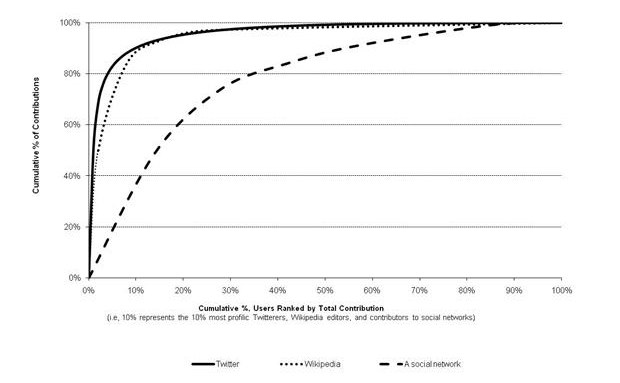Twitter needs young users and regular tweeters to grow past niche

Now that Twitter has received Oprah's Midas Touch and been the subject of a conference of its own - called Twtrcon - does that mean that it's "arrived?"
Some might argue that Twitter's growth numbers in recent months are proof enough that the site has gone mainstream. But others are arguing otherwise - and largely because of the demographics of Twitter users. A study conducted by an MBA student and associate professor at Harvard Business School dove deep into the gender demographics of the site and the frequency in which they post.
There's a deeper look into the male-female habits in that study if you'd like to check that out further (bottom line: men follow each other). But what caught my eye was the frequency of posts. The study found that the typical Twitter user rarely posts - roughly less than once every 74 days. It's a small group of users, roughly 10 percent, that's most active and actually accounts for as much as 90 percent of the traffic. And because of that trend, Twitter is more like a one-way or one-to-many publishing tool, not a communications tool. (see chart)
I went back and looked at the people I'm following and those who are following me. That conclusion about posting frequency is just about right in my personal Twittersphere. And, to go one further, it doesn't look like I have more than a handful of young adults in my Twittersphere either.
A different Twitter study, conducted by the Participatory Marketing Network and released at the Twtrcon conference, found that only 22 percent of young adults ages 18-24 are on Twitter, even though a whopping 99 percent of that demographic is reportedly using other social networks such as MySpace and Facebook.
What is it about Twitter that makes it so unappealing about young people? For that answer, I turned to a 24-year-old male family member. When I asked him why he wasn't tweeting, he replied back with a "Why would I want to tell everyone on the Internet useless information about me?" He said he prefers to tap out text messages to friends he actually knows.
A post by the Wharton School of Business earlier this year wrapped it up nicely when it compared Facebook's growth from colleage age students into mainstream, as opposed to Twitter's reverse approach. If Twitter can't sell itself to kids, how can it survive?
